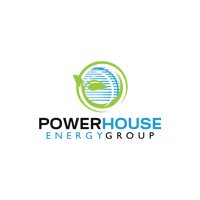PowerHouse Energy Group plc (LON:PHE), the UK Waste-to-Energy company seeking to develop hydrogen production from waste plastic and used tyres, this morning announced a partnership Memorandum of Understanding with Wrightbus Ltd, a leading bus manufacturer whose products include innovative hydrogen powered buses.
This MOU was negotiated in collaboration with Waste2tricity Ltd as part of its commercial partnership with PowerHouse as its Project Development Consultant. The MOU is non binding and although there can be no certainty a binding agreement will be entered into, the Board of PowerHouse expects this to lead to a definitive agreement under which Wrightbus will supply hydrogen fuel powered buses and PowerHouse will provide access to its Distributed Modular Gasification (“DMG®”) system for the low cost and environmentally responsible production of hydrogen.
It is expected that this first-of-its-kind turnkey solution will be marketed to local authorities and public transport providers in the UK and internationally with a particular focus on city centres, where the lack of emissions generated by hydrogen fuel cell buses bring important environmental and quality-of-life benefits. PowerHouse’s compact DMG®system, has the capacity to process 25 tonnes of plastic per day, and would have the potential to provide hydrogen to fuel buses and also provide electricity for sale to either the national grid or private clients.
The DMG® system has the potential to enable hydrogen to be produced locally from small-scale plastic processing plants and sold at a cost competitive with petrol and diesel. To date the production and distribution costs of hydrogen produced from Natural Gas has been prohibitive and produced considerable CO2 emissions. PowerHouse believes it can change the economics of that situation with carbon neutral hydrogen.
Keith Allaun, CEO of Powerhouse, commented: “We’re delighted to announce this MOU with an alternative energy leader like Wrightbus – an innovator in clean public transport. Together, we believe we have the potential to offer a cost-effective turnkey solution in which we will produce hydrogen using our DMG® process to produce the road fuel for Wrightbus’s zero emission hydrogen buses. This is the model by which we can begin to change the environment. Together we offer a compelling proposition for transport providers such as a local authority in which they would be able to offer a zero emission bus service at the same cost as diesel transportation, with zero emissions, and converting waste into hydrogen and electricity. Given our shared corporate objectives to make a positive difference to our world profitably, PowerHouse and Wrightbus are an ideal match.”


